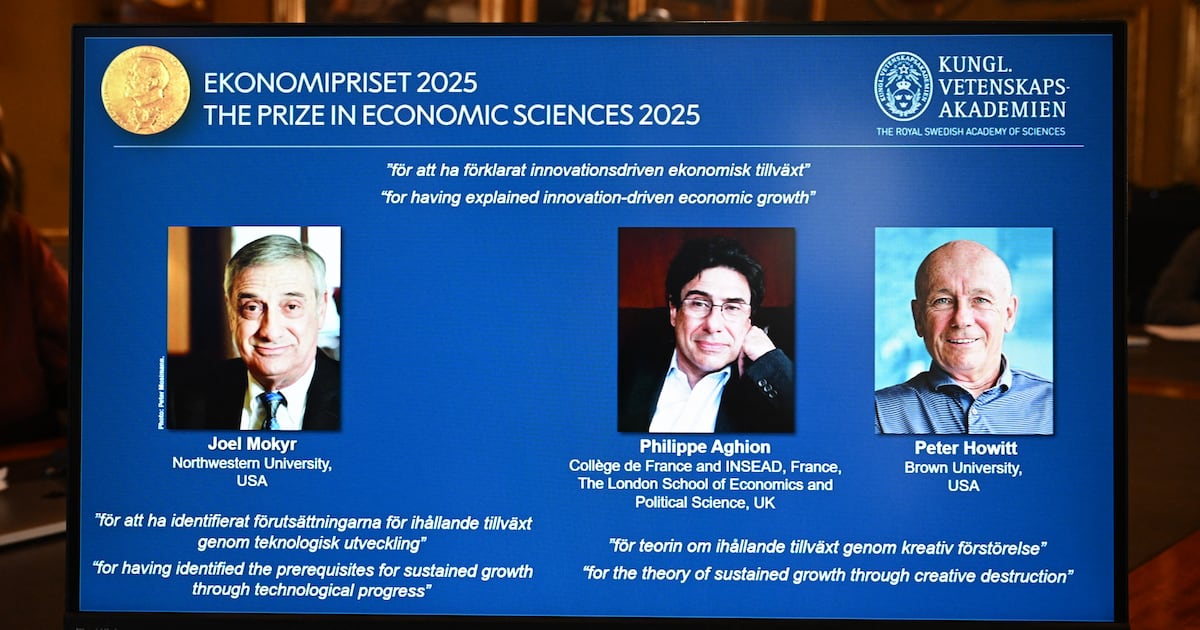Science
Nobel Laureate Joel Mokyr Collaborates on Book with UCD Economists

Nobel Prize-winning economist Joel Mokyr is set to co-author a new book with two notable economists from University College Dublin (UCD), including Morgan Kelly, who famously warned about the Irish property bubble in 2006. The collaboration aims to explore the intricacies of the industrial revolution in Britain, although the title of the book has yet to be determined.
Cormac Ó Gráda, an emeritus professor of economics at UCD, shared insights about the project, stating, “[We] are working on a book together about the industrial revolution in Britain.” He further explained that he and Kelly had initially been developing the book independently before inviting Mokyr to join them.
Mokyr, who currently teaches at Northwestern University in the United States, has previously made significant contributions to economic scholarship. His 1983 work, Why Ireland Starved: A Quantitative and Analytical History of the Irish Economy, 1800-1850, has had a profound impact on the understanding of Irish history and economics. Ó Gráda noted that it was during the research for this influential book that he first met Mokyr, leading to a long-standing friendship.
The announcement of Mokyr as a recipient of the 2025 Nobel Prize in Economics, alongside two other economists, has brought renewed excitement to this collaborative project. Ó Gráda expressed his enthusiasm, stating, “I’m still buzzing. I’ve been talking to him a few times already today. We are close friends.”
Before the Nobel announcement, Ó Gráda had jokingly predicted Mokyr’s recognition, to which Mokyr humorously replied that he was more likely to become a pope, given his Jewish heritage.
The ongoing work on the book about the British industrial revolution is reportedly “half done,” according to Ó Gráda. He acknowledged that the recent Nobel recognition might cause some delays but remains optimistic about the project’s progress. “So Morgan and I will have to step up,” he remarked.
Mokyr’s journey into Irish economic history began in the late 1970s when he transitioned from studying the Belgian and Dutch economies to seeking a so-called “loser economy” for his next research focus. This led to someone suggesting Ireland, ultimately resulting in his acclaimed work on the Irish famine.
The collaboration between these esteemed economists promises to shed new light on a pivotal period in British history, intertwining their varied insights and experiences. As they advance their research, the academic community and readers alike await the insights that will emerge from this partnership.
-

 Top Stories3 months ago
Top Stories3 months agoTributes Surge for 9-Year-Old Leon Briody After Cancer Battle
-

 Entertainment4 months ago
Entertainment4 months agoAimee Osbourne Joins Family for Emotional Tribute to Ozzy
-

 Politics4 months ago
Politics4 months agoDanny Healy-Rae Considers Complaint After Altercation with Garda
-

 Top Stories4 months ago
Top Stories4 months agoIreland Enjoys Summer Heat as Hurricane Erin Approaches Atlantic
-

 World5 months ago
World5 months agoHawaii Commemorates 80 Years Since Hiroshima Bombing with Ceremony
-

 Top Stories3 months ago
Top Stories3 months agoNewcastle West Woman Patricia Foley Found Safe After Urgent Search
-

 Top Stories5 months ago
Top Stories5 months agoFianna Fáil TDs Urgently Consider Maire Geoghegan-Quinn for Presidency
-

 World5 months ago
World5 months agoCouple Convicted of Murdering Two-Year-Old Grandson in Wales
-

 World5 months ago
World5 months agoGaza Aid Distribution Tragedy: 20 Killed Amid Ongoing Violence
-

 World5 months ago
World5 months agoAristocrat Constance Marten and Partner Convicted of Infant Murder
-

 Top Stories4 months ago
Top Stories4 months agoClimbing Errigal: A Must-Do Summer Adventure in Donegal
-

 Top Stories4 months ago
Top Stories4 months agoHike Donegal’s Errigal Mountain NOW for Unforgettable Summer Views









